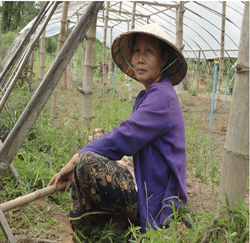Focal point
Location
The Food and Agriculture Organization of the United Nations leads international efforts to defeat hunger. Serving both developed and developing countries, FAO acts as a neutral forum where all nations meet as equals to negotiate agreements and debate policy. FAO is also a source of knowledge and information. We help developing countries and countries in transition modernize and improve agriculture, forestry and fisheries practices and ensure good nutrition for all. Since our founding in 1945, we have focused special attention on developing rural areas, home to 70 percent of the world's poor and hungry people.
Members:
Resources
Displaying 2316 - 2320 of 5074Gender and equity implications of land-related investments - Cases of study - Zambia,Tanzania, Ghana and Lao (FAO, 2013)
The gender and equity implications of land-related investments on land access and labour and income-generating opportunities A case study of selected agricultural Investments in LAO PDR (2013)
CEDAW: A tool for gender-sensitive agriculture and rural development policy and programme formulation
This document gives a brief overview of CEDAW and, in particular, those articles that relate to rural women (especially Article 14). It then continues on to discuss how different organizations can use CEDAW for gender-sensitive program and policy formulation. It also gives some example case study “success stories” within different countries, as well as some further resources.
CEDAW: A tool for gender-sensitive agriculture and rural development policy and programme formulation
Agricultural policies need to address gender inequalities to ensure effective development interventions that can achieve positive and sustainable results in the lives of rural women, men, girls and boys. One powerful instrument for promoting the realization of the rights and potential of rural women and girls is the Convention on the Elimination of All Forms of Discrimination against Women (CEDAW).
Governing land for women and men: A technical guide to support the achievement of responsible gender-equitable governance of land tenure
The guide focuses on equity and on how land tenure can be governed in ways that address the different needs and priorities of women and men. It moves away from long-standing debates about gender equality in access to land, towards the mainstreaming of gender issues to achieve more gender-equitable participation in the processes and institutions that underlie all decision-making about land.
Resolución Nº 15 - Instructivo para sustanciar el proceso de expropiación en primera instancia
A Resolution to provide instructions to standardize the process and procedures of land expropriation in the first instance.









